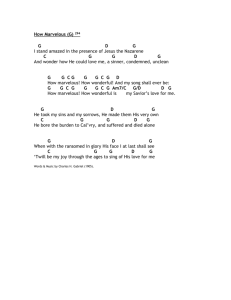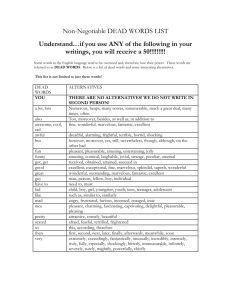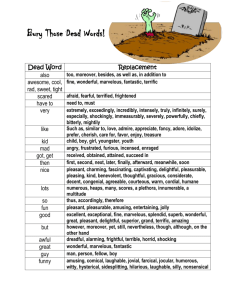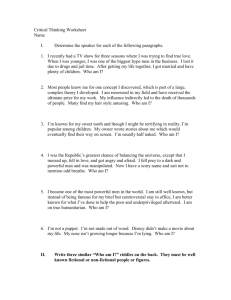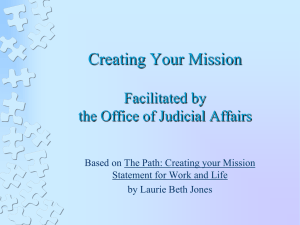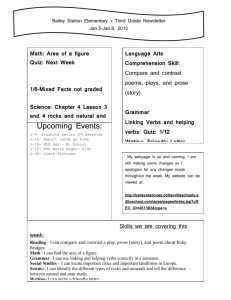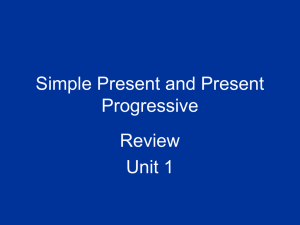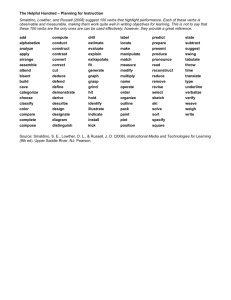Transitional Words The following are common words and phrases
advertisement
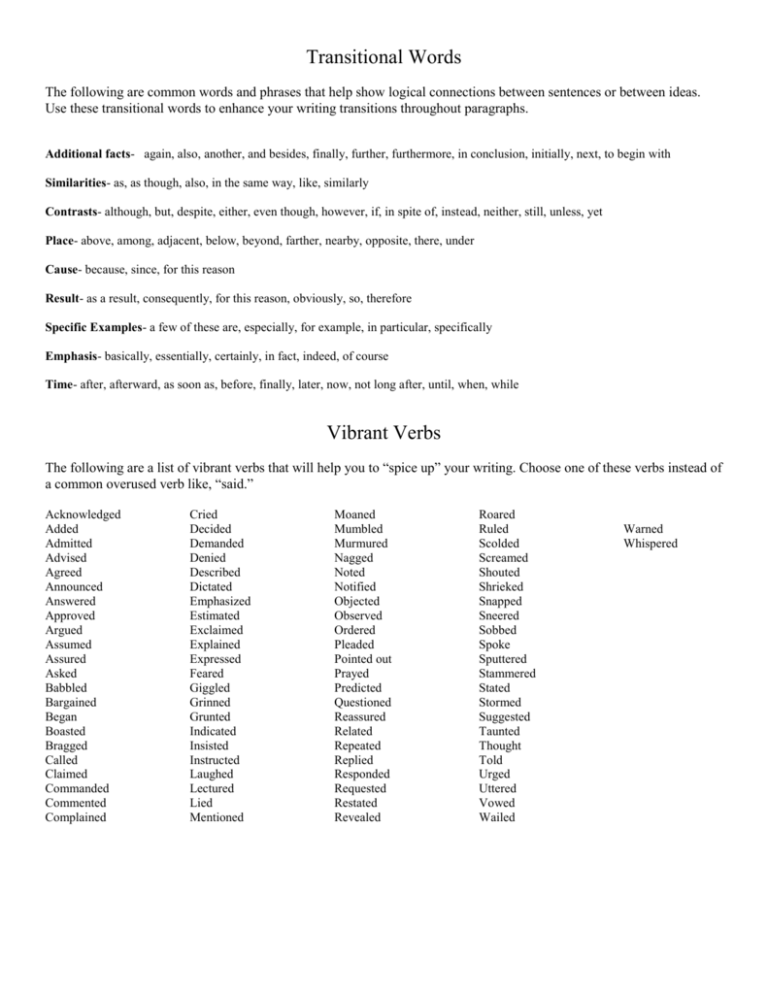
Transitional Words The following are common words and phrases that help show logical connections between sentences or between ideas. Use these transitional words to enhance your writing transitions throughout paragraphs. Additional facts- again, also, another, and besides, finally, further, furthermore, in conclusion, initially, next, to begin with Similarities- as, as though, also, in the same way, like, similarly Contrasts- although, but, despite, either, even though, however, if, in spite of, instead, neither, still, unless, yet Place- above, among, adjacent, below, beyond, farther, nearby, opposite, there, under Cause- because, since, for this reason Result- as a result, consequently, for this reason, obviously, so, therefore Specific Examples- a few of these are, especially, for example, in particular, specifically Emphasis- basically, essentially, certainly, in fact, indeed, of course Time- after, afterward, as soon as, before, finally, later, now, not long after, until, when, while Vibrant Verbs The following are a list of vibrant verbs that will help you to “spice up” your writing. Choose one of these verbs instead of a common overused verb like, “said.” Acknowledged Added Admitted Advised Agreed Announced Answered Approved Argued Assumed Assured Asked Babbled Bargained Began Boasted Bragged Called Claimed Commanded Commented Complained Cried Decided Demanded Denied Described Dictated Emphasized Estimated Exclaimed Explained Expressed Feared Giggled Grinned Grunted Indicated Insisted Instructed Laughed Lectured Lied Mentioned Moaned Mumbled Murmured Nagged Noted Notified Objected Observed Ordered Pleaded Pointed out Prayed Predicted Questioned Reassured Related Repeated Replied Responded Requested Restated Revealed Roared Ruled Scolded Screamed Shouted Shrieked Snapped Sneered Sobbed Spoke Sputtered Stammered Stated Stormed Suggested Taunted Thought Told Urged Uttered Vowed Wailed Warned Whispered Dead Words Some words in the English language tend to be overused and therefore lose their power. These are called Dead Words. Below is a list of dead words and more interesting alternatives that should be used in their place when you are writing. Also: too, moreover, besides, as well as, in addition to Awesome, Cool, Rad: Scared: fine wonderful, marvelous, great, fantastic afraid, fearful, terrified, frightened Have to: need to, must Very: extremely, exceedingly, fantastically, unusually, incredibly, intensely, truly, fully, especially, shockingly, bitterly, immeasurably, infinitely, severely, surely, mightily, powerfully, chiefly Like: such as, similar to, similarly Kid: child, boy, girl, youngster, youth Mad: angry, frustrated, furious, incensed, enraged Got, Get: Then: received, obtained, attained, succeed in first, second, next, later, finally, afterward, meanwhile, soon Nice: pleasant, charming, fascinating, captivating, delightful, Lots: Numerous, heaps, many, scores, innumerable So: pleasurable, pleasing thus, accordingly, therefore Fun: Good: But: pleasant, pleasurable, amusing, entertaining, jolly excellent, exceptional, fine, marvelous, splendid, superb, however, moreover, yet, still, nevertheless, though, although, on the Awful: dreadful, alarming, frightful, terrible, horrid, shocking Great: wonderful, marvelous, fantastic Guy: Funny: wonderful man, person, fellow, boy amusing, comical, laughable, jovial other hand
